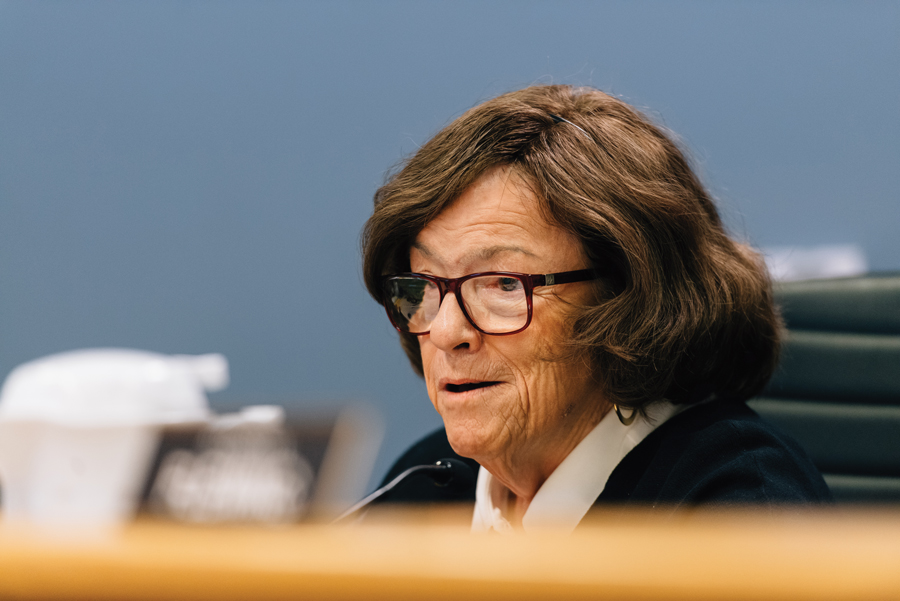Reparations subcommittee discusses Home Buyer Assistance Benefit Program
Daily file photo by Noah Frick-Alofs
Ald. Ann Rainey (8th). Rainey has apologized to City Clerk Devon Reid for remarks she made at a Feb. 2 debate for Eighth Ward aldermanic candidates.
June 21, 2020
Evanston’s reparations subcommittee discussed a Home Buyer Assistance Benefit Program Friday, an initiative that works to remedy past discriminatory housing practices. The program aims to expand Evanston’s economic diversity and promote black residents’ homeownership.
Last summer, the subcommittee reached out for community feedback on possible efforts pertaining to reparations. Many categories were discussed, including efforts surrounding history/culture, finance, education, institutions/systems and power structure, but residents’ push for the city’s prioritization of housing was particularly strong.
Reparations efforts will be funded by tax revenue from adult cannabis sales.
“We can invite black Evanstonians back home… with initiatives that help them have ownership in our community (and) help them and their families build wealth,” said Ald. Robin Rue Simmons (5th).
The committee proposed the city provide black first-time homebuyers a down payment of $10,000. In order to qualify for assistance, homebuyers would have to agree to occupy a standard dwelling unit as their principal residence for 10 years. A standard dwelling unit includes any condominium, single-family home, one- or four-unit building within Evanston’s city limits.
The committee also proposed that black residents who have been affected by discriminatory practices be guaranteed their loans would be forgiven. Black residents who qualify include those who can prove they have faced housing discrimination through any official city policies or those who have direct black relatives that resided in Evanston when discriminatory practices were in effect between 1919 and 1969.
“Because of the historical segregation that’s going on in Evanston, there’s a lot of heavy concentration of black residents in singular areas,” Deputy City Attorney Nicholas Cummings said. “This is to try and help provide the availability of diversity throughout the city.”
Ald. Ann Rainey (8th) expressed concerns about the amount of the down payment.
“Maybe in renovating a condo that might be a reasonable number, but I don’t think in terms of assisting with a down payment… I just don’t think that’s going to be that helpful in this day and age with the cost of housing,” Rainey said.
Rue Simmons said the initial projection for income and tax revenue toward reparations efforts is set at $250,000 for the first quarter of 2021, but Rainey insisted that this number is also too low. Rainey said based on other communities and receipts, the first quarter receipt should come out to around $400,000.
“What I would suggest is that we limit the number of people we can assist, but make our assistance meaningful,” Rainey said. “And then, as we receive more and more money, increase the number of people we can assist.”
Subcommittee members then agreed to replace the $10,000 with a down payment of up to $25,000, depending on home buyers’ circumstances. They also agreed to raise the total program budget from $250,000 to $400,000. Staff anticipates bringing the policy for the Home Buyer Assistance Program to City Council in July.
Rainey expressed confidence that tax revenue from cannabis sales would be enough to fund the budget increase.
“The report as of May of 2020 produced the highest sales since January,” she said. “Things are not leveling off, they’re increasing.”
Email: [email protected]
Twitter: @juliaa_grace
Related Stories:
— Evanston outlines plan for reparations
— Aldermen establish historic fund for local reparations
— Reparations subcommittee evaluates plan for blak homebuyers


